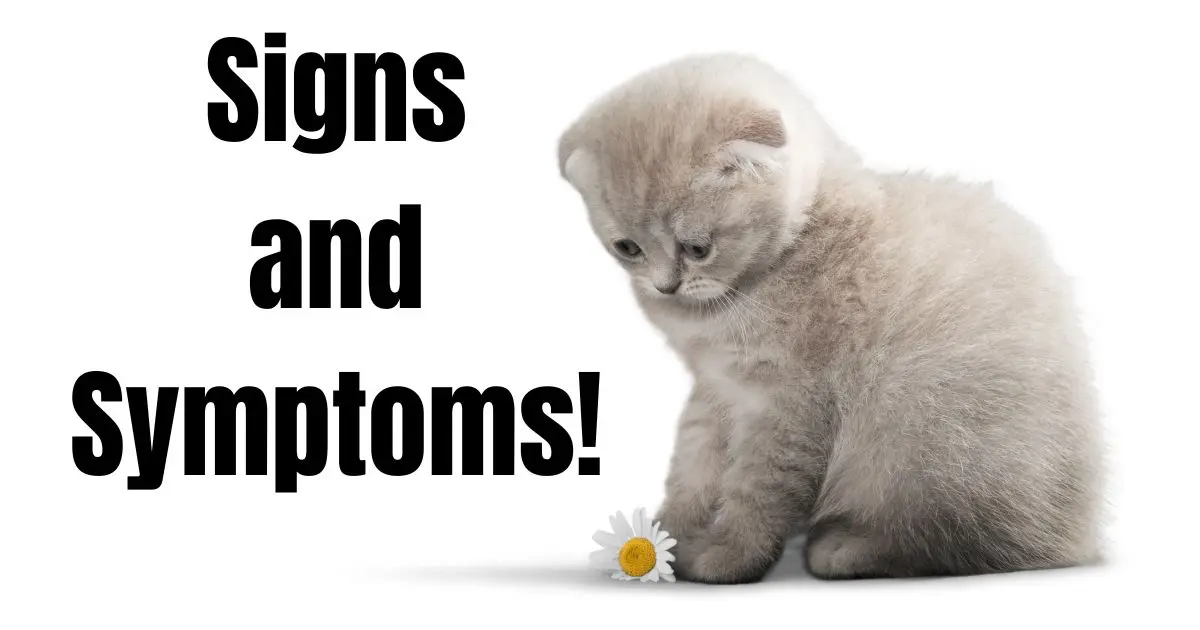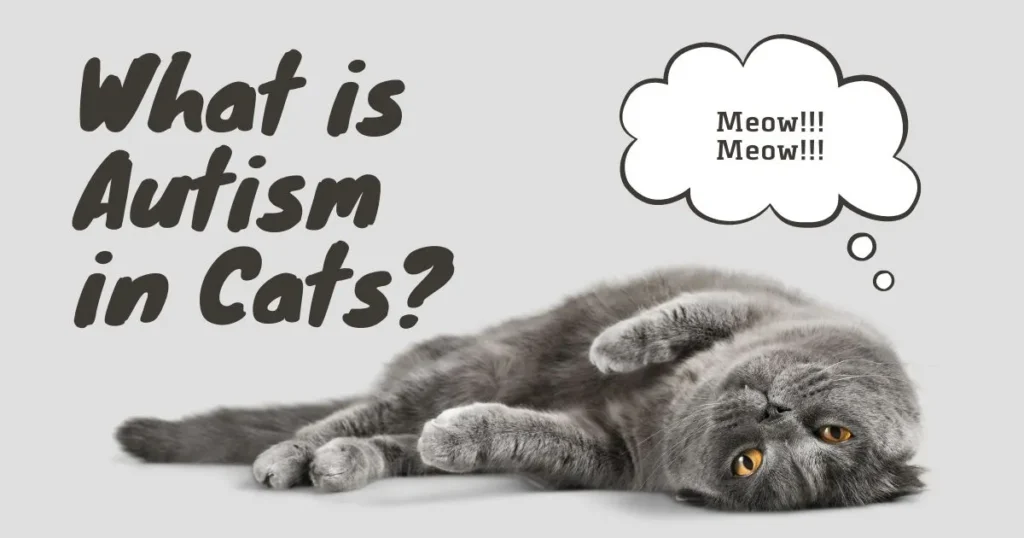√√ REVIEWED & FACT-CHECKED BY
In the realm of pet care and behavior, the question often arises: Can cats have autism? The short answer is no. Autism is a complex neurodevelopmental disorder exclusive to humans, characterized by challenges in social interaction, communication, and repetitive behaviors.
While cats share certain behavioral traits with humans, such as preferences for routine and sensitivity to environmental changes, they cannot exhibit autism as we understand it.
Cats have their unique ways of communicating and interacting with the world around them, rooted in feline instincts and social structures. Understanding this distinction is essential for providing appropriate care and support for our feline companions.
Instead of attributing human conditions to our pets, it’s vital to appreciate their individuality and cater to their specific needs and behaviors. By doing so, we can ensure a harmonious relationship with our beloved feline friends.
Can Cats Have Autism?
Cats cannot have autism. Autism is a complex neurodevelopmental disorder that is exclusive to humans.
While cats may exhibit behaviors that seem similar to those seen in autism, such as repetitive movements or sensitivity to changes, these behaviors do not indicate autism.
Cats’ social structures, cognitive processes, and communication methods differ significantly from those of humans. Additionally, the diagnosis of autism requires a comprehensive assessment of social, communication, and behavioral patterns, which cannot be applied to animals.
Instead of attributing human conditions to cats, it is crucial to understand and appreciate their unique behaviors and needs. Providing a supportive environment tailored to the cat’s preferences and ensuring their overall well-being involves recognizing and addressing their individual characteristics and behaviors.
By understanding the limitations of applying human concepts to animals, cat owners can better care for their feline companions and foster a harmonious relationship based on mutual understanding and respect.
What are the causes of Autism in Cats?
Understanding the potential causes of autism-like behaviors in cats requires considering factors such as genetics, environment, and early experiences. Genetic mutations or abnormalities may predispose certain cats to behaviors resembling autism, while inadequate socialization or traumatic events during early development can also contribute. Environmental stressors and underlying medical conditions, such as neurological disorders, may further influence behavior. However, the exact causes remain poorly understood, necessitating further research. Despite this, recognizing and addressing these behavioral challenges with appropriate care and support is crucial for promoting the well-being of affected cats.
What Are The Signs Of An Autistic Cat?
Cats, like humans and other animals, exhibit a variety of behaviors that may resemble unique traits or conditions. While cats cannot receive a specific diagnosis of “Autism” like humans, certain behaviors in cats may resemble characteristics associated with autism spectrum disorder (ASD). Here are some signs that your cat may display unusual behavioral traits:

Social Interaction
Autistic cats often have heightened responses to sensory stimuli, reacting strongly to loud noises or bright lights. They may also overreact to minor stimuli, such as flinching or fleeing from sudden movements. Having Difficulty processing sensory information can lead to increased stress or anxiety, which affects the cat’s overall well-being and behavior.
Repetitive Behaviors
Autistic cats develop coping strategies to manage their surroundings, including self-soothing behaviors like excessive grooming or seeking quiet areas when stressed. They may prefer solitary activities to reduce sensory overload. Depending on their temperament, autistic cats may respond differently to stressors, from avoidance to aggression. Recognizing these adaptations helps owners provide appropriate support, ensuring their cats feel safe and secure.
Communication
Autistic cats may struggle with communication, exhibiting limited vocalizations and difficulty interpreting social cues. This can lead to misunderstandings between the cat and its owner, resulting in frustration for both parties.
Understanding these challenges is crucial for creating a supportive environment where the cat’s needs can be effectively met, enhancing its overall well-being and quality of life.
Sensory Sensitivity
Sensory sensitivity is another common sign of autism in cats. They may be overly sensitive to certain sounds, textures, or smells and may become agitated or anxious in response to these stimuli.
Many of these behaviors may have different explanations, and not all of them necessarily indicate atypical behavior. If you’re worried about your cat’s behavior, consulting with a veterinarian or animal behaviorist is advisable. They can assess your cat’s behavior and offer guidance on how to best support them.
How Common is Autism in Cats?
Autism in cats is relatively rare, but it is believed to be more common in certain breeds, such as the Siamese and Burmese. In addition, It is also more common in male cats than in female cats. However, the exact prevalence of autism in cats is not known, as there is limited research on the topic.
Understanding Feline Special Needs
Although Cats cannot have autism, they can suffer from a variety of conditions and have special needs that require their owners’ attention and care. These may result from birth defects, illnesses, or accidents, impacting their physical and mental well-being.
Birth defects like congenital abnormalities or genetic predispositions can affect mobility, sensory perception, or organ function. Illnesses, from chronic conditions like diabetes to acute infections, can significantly impact a cat’s quality of life. Accidents or injuries, whether from falls or fights, can lead to disabilities or behavioral changes necessitating specialized care.
Recognizing and addressing these needs is crucial for ensuring a cat’s health and happiness. Early detection through regular veterinary check-ups and prompt intervention can improve prognosis and quality of life. Tailored care, including medication, physical therapy, or environmental modifications, helps cats thrive despite challenges.
Understanding and accommodating feline special needs fosters strong bonds and provides the best care and quality of life.
Some Common Misconceptions
- Cats can have autism: (False)
- Autistic cats exhibit specific behaviors: (True, but not necessarily indicative of autism)
- Autistic cats cannot bond with their owners: (False)
- Autism in cats requires treatment: False
- Autism-like behaviors in cats are uncommon: (True, but can occur)
Treatment For Cats With Autism
Managing autism-like behaviors in cats requires a holistic approach tailored to their individual needs. Since cats cannot technically have autism, there isn’t a one-size-fits-all treatment plan.
Creating a supportive environment is crucial, including environmental enrichment with hiding spots and interactive toys. Establishing predictable routines and minimizing sudden changes offer stability for autistic cats. Behavioral modification techniques like positive reinforcement training shape desired behaviors.
Regular veterinary care addresses underlying medical issues. Patience, understanding, and unconditional love are key in building a strong bond and ensuring the well-being of autistic cats.
What to Do If You Suspect Your Cat Has Autism
If you suspect your cat has autism-like behaviors, consult a veterinarian to rule out underlying medical conditions and receive guidance. Here’s what you can do:
- Observe Behavior: Note any unusual behaviors, like repetitive movements or sensitivity to changes.
- Consult a Veterinarian: Schedule a visit to rule out medical conditions.
- Create a Supportive Environment: Provide a calm environment with hiding spots and routines.
- Implement Behavioral Modification: Use positive reinforcement to encourage desired behaviors.
- Seek Professional Advice: Consider consulting with a veterinary behaviorist for guidance.
- Offer Love and Understanding: Show patience, love, and understanding as you navigate their needs together.
Taking these steps ensures the best care for your cat, helping them thrive despite challenges.
Conclusion
In conclusion, although cats cannot have autism, they may display behaviors akin to those observed in humans with autism spectrum disorder. Understanding this distinction is crucial for providing appropriate care and support for our feline companions.
Consulting with a veterinarian if we suspect autism-like behaviors and creating a supportive environment tailored to their preferences are essential steps. Through patience, understanding, and unconditional love, we can nurture strong bonds with our cats and ensure their well-being. By appreciating their uniqueness and respecting their specific needs, we can foster a harmonious relationship with our beloved pets.”
FAQs
How do autistic cats act?
Autism in cats is characterized by difficulty in social interaction, communication, and repetitive behaviors. If your cat has autism cat may have trouble understanding social cues, not responding to their name, engaging in repetitive behaviors, being sensitive to stimuli, and having difficulty adjusting to changes in their environment or routine.
Why Does My Cat Groom Excessively?
Excessive grooming could be a sign of FASD or other stress-related issues.
Can autism in cats be treated?
There is no cure for autism in cats, but behavior modification techniques and environmental changes can help manage the symptoms.
Can cats with autism live an everyday life?
Absolutely! With proper care and support, special-needs cats can lead happy and fulfilling lives. They thrive in environments where their needs are understood and accommodated. Providing love, patience, and specialized care ensures that these cats can enjoy a high quality of life and form strong bonds with their owners.
How can I care for a cat with special needs?
Caring for a cat with special needs involves creating a safe and supportive environment tailored to their requirements. Provide plenty of hiding spots, vertical spaces, and interactive toys. Regular veterinary check-ups are crucial to address any medical issues promptly. Additionally, consider seeking advice from a veterinary behaviorist for specialized guidance.
Can cats exhibit behaviors similar to autism?
Yes, cats may display behaviors resembling those seen in autism, such as repetitive movements or sensitivity to changes. However, exhibiting these behaviors does not necessarily mean they have autism. It’s essential to consult with a veterinarian for proper evaluation and guidance.







